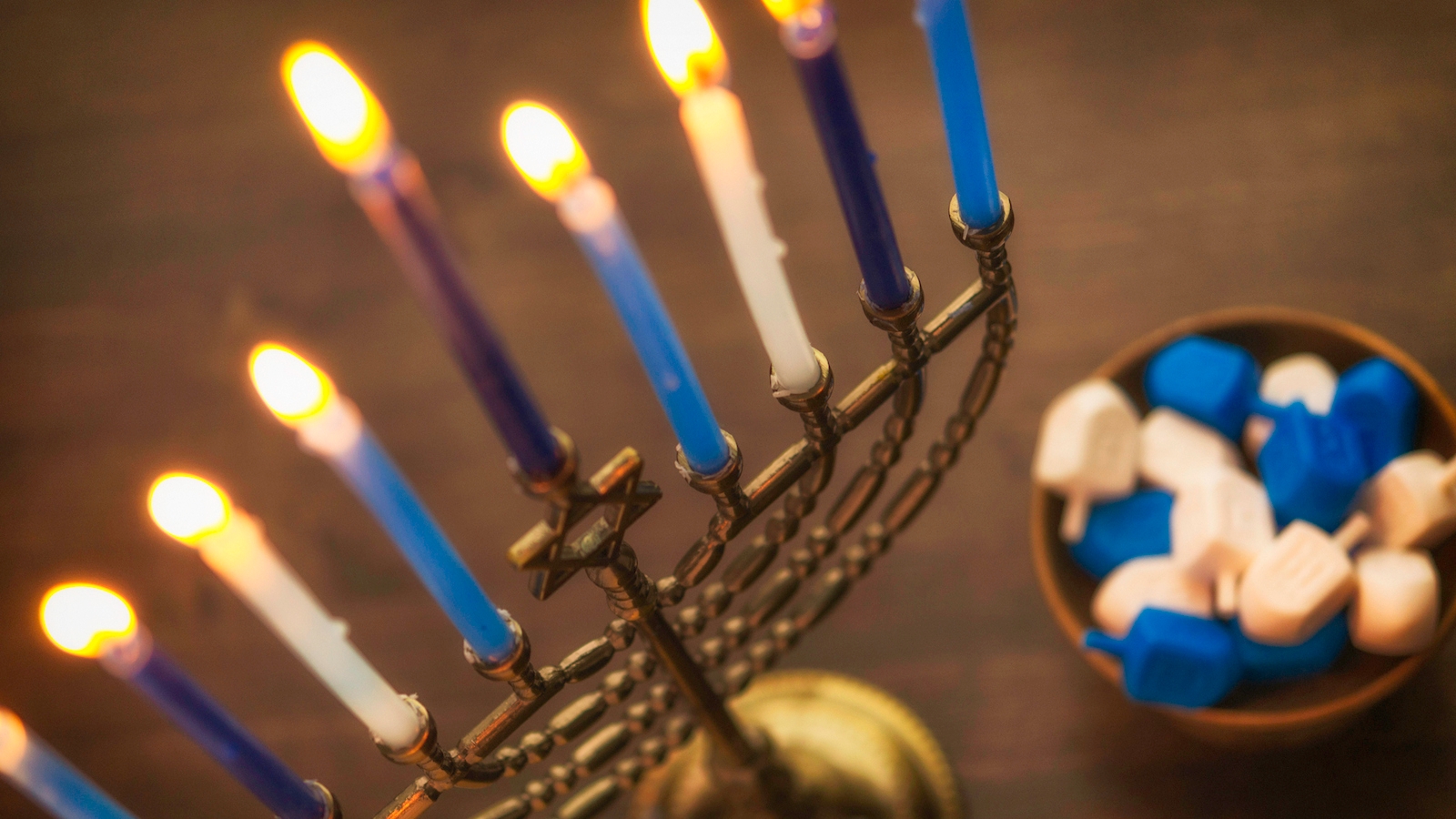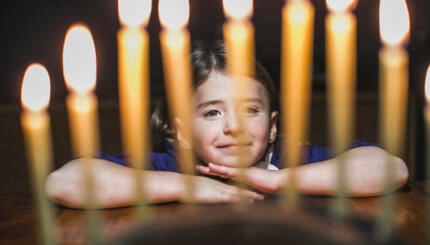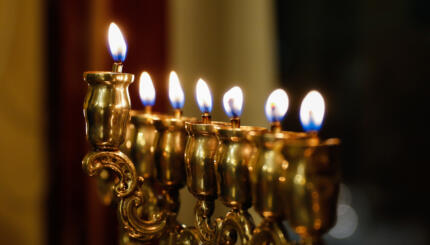Hanukkah can begin as early as November 27th and as late as December 26th, in which case, because it lasts eight days, it extends into January. Though the holiday can overlap November and December, some part at least always falls in December. In most years, Hanukkah is celebrated entirely in December.
Click here for a calendar of upcoming Jewish holidays.
When Hanukkah begins on its earliest start date (November 27th) it occasionally overlaps with American Thanksgiving, what some have playfully dubbed Thanksgivukkah. (Thanksgiving also does not have a fixed calendar date because it is celebrated on the fourth Thursday of the month of November.) The last time Hanukkah coincided with Thanksgiving was in 2013 when it began on the night of Wednesday, November 27th. The two will not coincide again until 2070 when Hanukkah will again begin on the 27th of November which, in that year, will be Thanksgiving Day.
Read: Do Jews celebrate Thanksgiving?

Help us keep Jewish knowledge accessible to millions of people around the world.
Your donation to My Jewish Learning fuels endless journeys of Jewish discovery. With your help, My Jewish Learning can continue to provide nonstop opportunities for learning, connection and growth.
Hanukkah falls on different days in different years because the Jewish calendar is based on both lunar and solar cycles. The months are each exactly the length of a moon cycle, but since the 12-month lunar year is a few days shorter than a solar year, strict adherence to a lunar calendar would mean that the holidays would eventually take place at the wrong season. Therefore, to coordinate the lunar year with the solar year, Judaism instituted a system of 19-year cycles, in which there are seven leap years. Instead of including an extra day, as the secular leap year does, the Jewish leap year includes a whole extra month. This ensures that although holidays do not fall on the exact same day year to year according to the solar calendar, they do not migrate noticeably through the seasons as, for instance, Ramadan does (because Islam follows a purely lunar calendar).
Although the Jewish calendar is designed to keep holidays fixed to seasons, there is in fact a tiny bit of drift. The Jewish year shifts forward by about one day every 250 years. For this reason, in the distant future it will not be possible for Hanukkah to fall on Thanksgiving and there will be Hanukkah celebrations that fall entirely in January. The first time this will happen is January 1, 3032, which corresponds to the Jewish year 6792.



